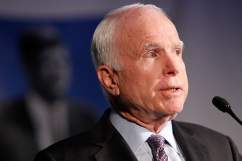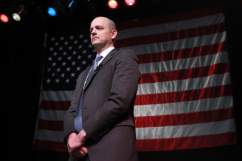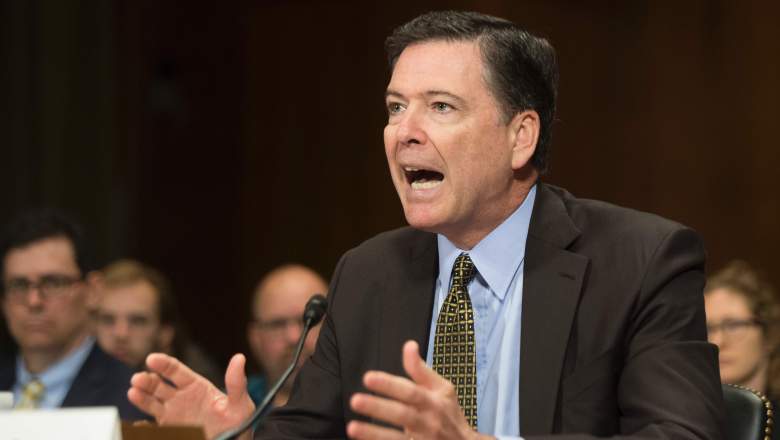
James Comey. (Getty)
When President Donald Trump fired FBI Director James Comey on May 9, he ended the shortest tenure for a recent FBI director. No FBI director since J. Edgar Hoover served less than four years until Comey’s tenure ended far short of his 10-year term. He was also just the second FBI Director ever fired by a president.
An FBI director is nominated by the president to fill a 10-year term, with the hope that the director will not be a partisan pick. Since Hoover, only Robert S. Meuller III served a full 10-year term. The nominee is approved by the Senate.
Comey started his term on September 4, 2013, just after Meuller finished his 12-year tenure. The Trump Administration has said that Comey was fired because of his handling of the Hillary Clinton email investigation, but Comey was also leading an investigation into the Trump campaign’s alleged ties to Russia during the 2016 election.
Here’s a look at the history of the FBI’s creation and the tenures of each director.
Pre-Hoover: 1908-1925
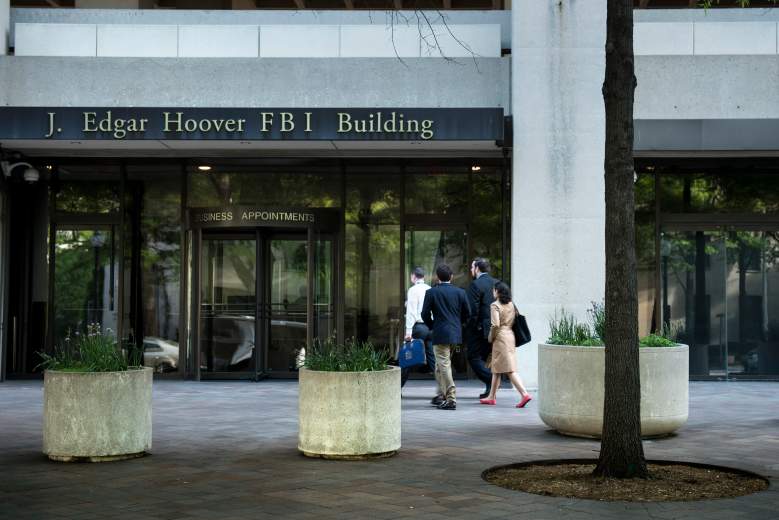
The J. Edgar Hoover building. (Getty)
The Federal Bureau of Investigation (FBI) was born when the Bureau of Investigation (BOI) was created on July 26, 1908 within the Department of Justice. It was lat
er renamed the U.S. Bureau of Investigation in 1932, then the Division of Investigation in 1935. That same year, it was re-named the Federal Department of Investigation.
The FBI and its predecessors were created to finally give the U.S. a federal law enforcement agency as the country’s urban population began to boom following the Spanish-American War. It was the Secret Service’s job to handle national criminal cases, but they were understaffed at the time. It was also a reaction to concerns about anarchists, especially after one assassinated President William McKinley in 1901. In 1908, Attorney General Charles J. Bonaparte created the bureau.
Before J. Edgar Hoover became director, the FBI went through several directors, none of whom served longer than six years. Stanley W. Finch was the first. He was named director on July 26, 1908 and stayed in the role until April 30, 1912.
Finch was followed by Alexander B. Bielaski, who ran the BOI from April 30, 1912 to February 10, 1919. Bielaski, who lived until 1964, had the longest tenure of pre-Hoover directors.
William E. Allen was acting director for several months in 1919 until William J. Flynn, the former head of the U.S. Railroad Secret Service, became director on July 1, 1919. His term ended on August 21, 1921 after he resigned. William J. Burns was the next director, holding the position until June 14, 1924.
J. Edgar Hoover – May 10, 1924 to May 2, 1972 (48 Years)
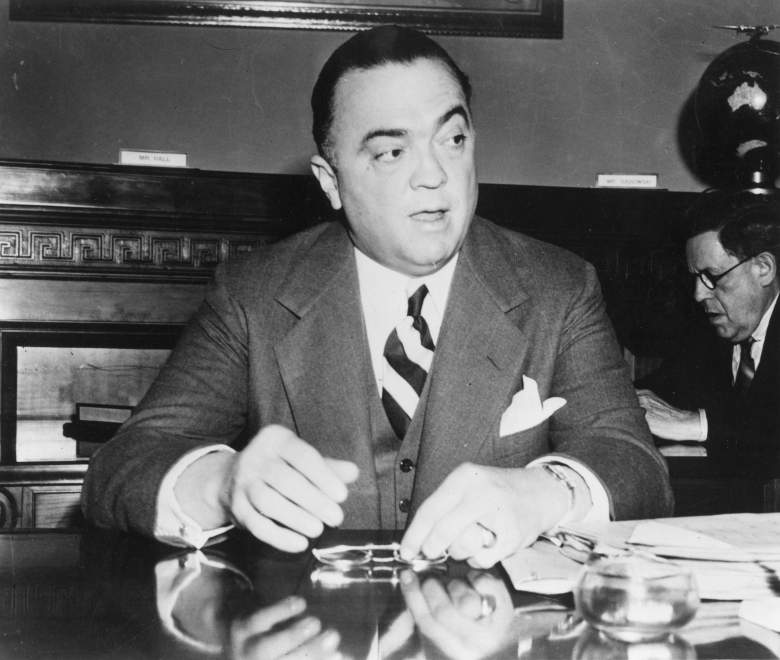
J. Edgar Hoover in 1945. (Getty)
J. Edgar Hoover was already a veteran of the Justice Department and the FBI when he became director in May 10, 1924 at age 29, even before it officially became the “FBI.” Hoover stayed in office until the day he died on May 2, 1972. He was 77 years old and led the FBI during eight different White House administrations.
Hoover is credited with building the FBI into what it is today, but he has a complicated legacy. There are plenty of rumors about Hoover, like the idea that he had files on the presidents to keep them from firing him. While this wasn’t true, he did keep files on everyone from criminals to movie stars that he could use to intimidate. According to author Kenneth D. Ackerman, the FBI had “subversive” files on 432,000 Americans by 1960. Many of these are now available to the public at the National Archives.
President Harry S. Truman even believed that Hoover was using the FBI as a private police force. “We want no Gestapo or secret police. FBI is tending in that direction. They are dabbling in sex-life scandals and plain blackmail… Edgar Hoover would give his right eye to take over, and all congressmen and senators are afraid of him,” Truman wrote.
Today, Hoover’s name is on the building in Washington where the FBI is based. The building was re-named to honor Hoover by a law signed by President Richard M. Nixon two days after Hoover died.
Clarence M. Kelley – July 9, 1973 to February 15, 1978 (4.8 Years)
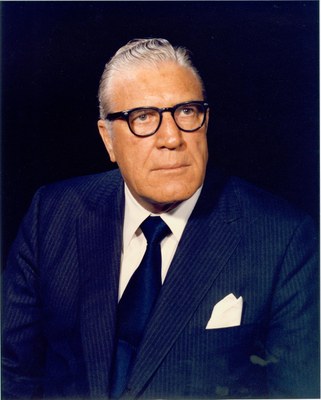
Clarence M. Kelley. (FBI)
After Hoover’s death, L. Patrick Gray and William D. Ruchelshaus served in acting capacities from 1972 to 1973. It wasn’t until Clarence M. Kelley took office on July 9, 1973 that the FBI had a full-time successor to Hoover.
Kelley started working at the FBI in October 1940 and served in the U.S. Navy during World War II. Kelly retired from the FBI in October 1961 to become the Chief of Police for Kansas City, Missouri. He was called back into service at the federal level when Nixon nominated him to replace Hoover.
Kelley remained as director until February 15, 1978. He died in August 1997 at age 85.
William H. Webster – February 23, 1978-May 25, 1987 (9.3 Years)
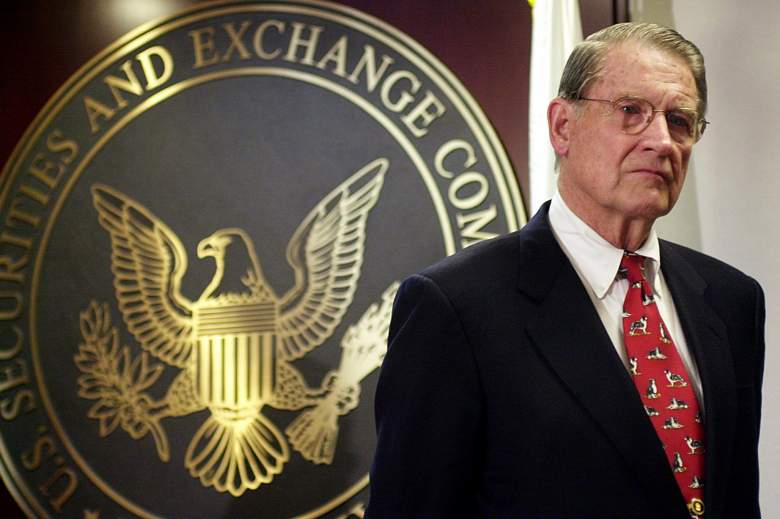
William Webster in 2002. (Getty)
After James B. Adams’ brief tenure as acting director in February 1978, William H. Webster took over on February 23, 1978. A former U.S. Circuit Court judge, Webster is currently the chair of the Homeland Security Council, a role he’s had since 2005.
Webster is the only person ever to serve as both FBI Director and Director of the Central Intelligence Agency. In May 1987, President Ronald Reagan named him the CIA Director, which meant he had to leave the FBI.
Webster is also a veteran of both World War II and the Korean War, serving in the U.S. Navy. He was born in St. Louis and is now 93 years old.
William S. Sessions – November 2, 1987 to July 19, 1993 (5.7 Years)
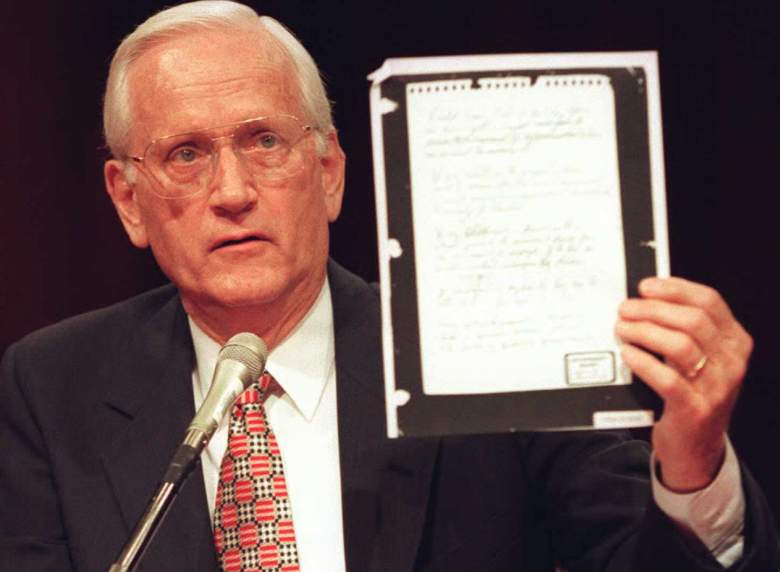
William S. Sessions. (Getty)
After Webster left for the CIA, the FBI was run by Acting Director John E. Otto until November 2, 1987 when William S. Sessions took over. The 86-year-old Sessions, who was also a judge for the United States District Court for the Western District of Texas, was the only FBI Director fired by a president until Trump fired Comey.
Sessions is known for advancing the FBI’s use of fingerprinting identification and DNA. However, his judgement came under scrutiny and Attorney General William P. Barr investigated Sessions for ethics violations. As the New York Times reported in January 1993, just as President Bill Clinton was about to be inaugurated, Barr accused Sessions of using an FBI plane and funds for personal reasons. Barr’s successor, Janet Reno, then said Sessions had shown “serious deficiencies in judgment.”
Sessions planned to fight for his job, but Clinton eventually fired him.
Louis J. Freeh – September 1, 1993 to June 25, 2001 (7.8 Years)
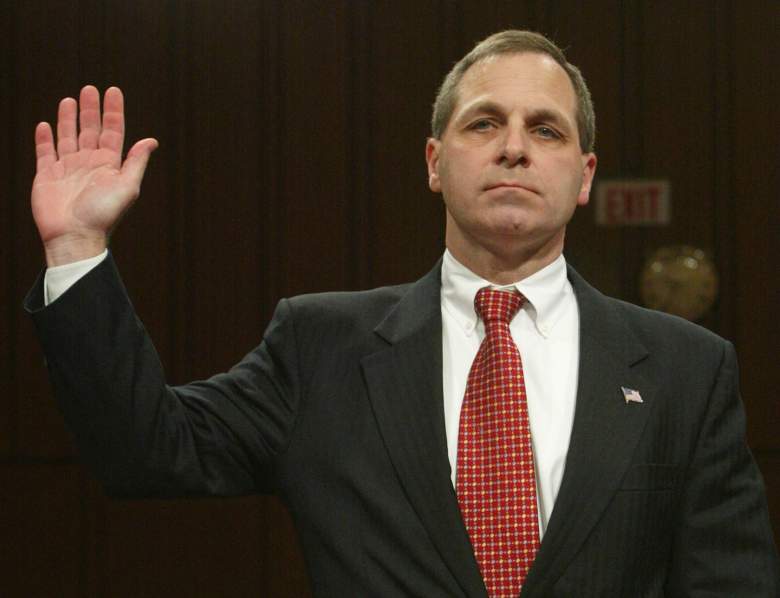
Louis J. Freeh. (Getty)
The next full-time FBI Director was Louis J. Freeh, who served until Clinton and George W. Bush. Freeh was previously a George H.W. Bush-appointed Judge of the United States District Court for the Southern District of New York. Today, the 67-year-old Freeh is an attorney in private practice.
Before becoming FBI Director, Freeh was famously the lead prosecutor in the “Pizza Connection” case, which centered on Sicilian organized crime members using pizza parlors as fronts for drug-trafficking. During his tenure at the FBI, he oversaw the Olympic Park bombing and Unabomber cases.
Freeh resigned from the FBI in June 25, 2001.
Robert S. Mueller III – September 4, 2001 to September 4, 2014 (12 Years)
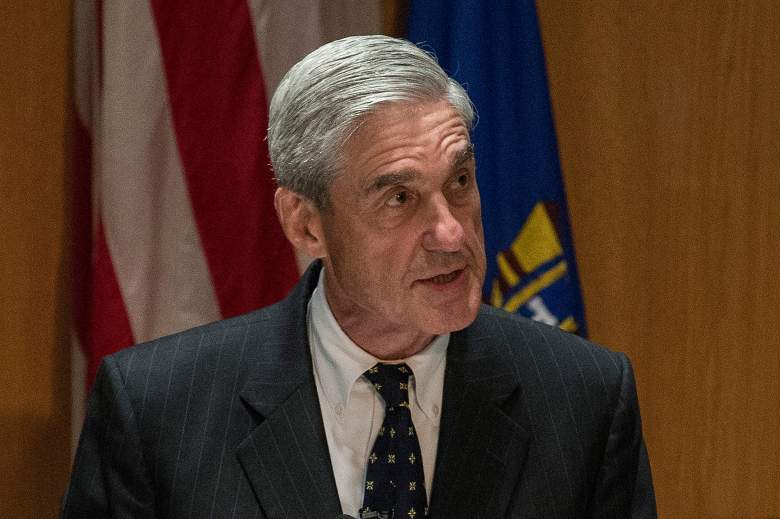
Robert S. Meuller III. (Getty)
Comey’s predecessor, Robert S. Mueller III, led the FBI for exactly 12 years, from September 4, 2001 to September 4, 2013. Between Freeh and Mueller, Thomas J. Pickard was acting director.
Just days into Mueller’s tenure at the FBI, the attacks of September 11, 2001 took place. Mueller also became the first FBI director since Hoover to serve more than 10 years. At President Barack Obama’s request, Mueller served exactly two years beyond the term, until Comey took over.
In March 2004, Comey, Mueller and Attorney General John Ashcroft famously offered to resign after the Department of Justice ruled that warrant-less domestic wiretapping was unconstitutional. President George W. Bush supported the three men and agreed to make changes.
Sicne 2013, Mueller has been a visiting professor at Stanford University.

